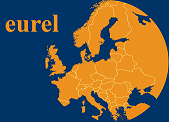Since the establishment of democracy, in 1974, the State and the Portuguese Catholic Church have managed the legislation of different ethical issues according to a negotiating strategy. That is especially evident when compared to the similar processes in other traditionally Catholic countries in Europe. Either on the referendum on abortion non-penalty or on the approval in parliament of same-sex marriage, political parties from left to right used religious topics in their discourses, very often in order to support their arguments whether they were for or against.
This paper aims to present the paradoxes of a society which became constitutionally neutral and more secular at macro and micro levels but at the same time reveals a deeply rooted Catholic culture, present throughout the political spectrum. In this context, despite the religious minorities have almost doubled in a decade – especially Evangelical Christians but also Muslims – their positions on ethical or other issues do not have a proportional visibility in public debates and are ignored by political agents.
- Other

 PDF version
PDF version

